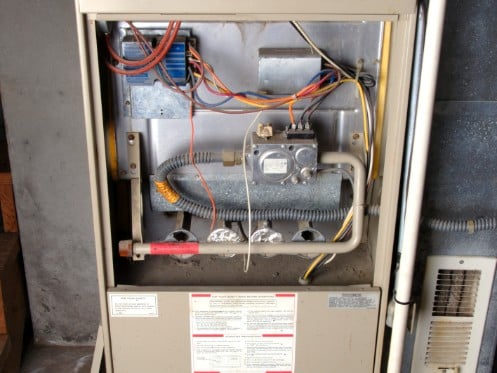Having a functioning furnace during the cold winter season means taking extra steps to ensure the unit operates properly. Finding out your furnace isn’t heating your home when you need it most can be an uncomfortable and sometimes dangerous situation. Experts recommend having your furnace inspected once each year. In fact, some warranties and insurance policies require annual tune-ups to prevent voiding your policy. Our professional HVAC technicians are highly skilled and trained in preventative maintenance for your furnace and have a checklist of what to look for. Read on to learn what your technician will do while performing routine furnace maintenance.
Change Air Filter
Your furnace air filter works to keep dust, allergens, and other contaminants out of the air that blows through your vents. This filter catches these contaminants before air enters the furnace to be heated, helping keep the unit clean. When the filter becomes excessively dirty or clogged, your furnace must work harder to move air, and the air quality in your home is compromised. Your HVAC technician will change this filter during your routine scheduled maintenance to ensure a healthier home and less stress on your furnace.
Clean and Inspect the Blower
Dust and dirt tend to build up on the blower, which moves air through the heating system. When this build-up of dust occurs, the blower does not work as efficiently as it should, which could lead to less efficient heating. Your HVAC technician will clean the blower to remove dust and inspect it to be sure the part is working properly. Over time, this is one of the common components of your furnace that does eventually wear out and needs to be replaced. Having it cleaned and inspected can alert your technician to possible issues ahead of time and prevent premature failure.
Check the Belts
Over time, belts wear out. Your HVAC technician will inspect the belts on your furnace, looking for cracks and other signs of damage. The technician will also assess for elasticity, ensuring the belt has not become loose. A loose belt will not work efficiently and may become so loose that it falls off the track, causing your furnace to stop working. Your technician will replace belts as needed to help you keep your furnace pumping out heat all winter long.
Check Electrical Connections
Without electricity, your furnace is just a big heap of metal. Part of the inspection and routine maintenance plan is to check the electrical connections of your heating unit. A professional technician will check that connections are snug, secure, and properly tightened. He or she will also test the current and voltage going to the motor. All of this helps keep your furnace from overheating which could lead to a fire. Proper connections and voltage also extend the life of your furnace and prevent premature failure.
Check Gas Connections
Many furnaces are powered with gas as a heat source. Gas-powered furnaces have a gas line connected to the unit. Your HVAC technician will inspect the gas line to into and out of the furnace to ensure a proper connection. It is also important to inspect the gas line for damage. Having a properly connected gas line eliminates the risk of gas leaks, fires, and explosions. When the furnace is turned on, you’ll also need to ensure your pilot light is lit. Exhaust pipes and vents should also be inspected when looking at the gas components of your furnace.
Lubricate Moving Parts
Moving parts of any machine cause friction, which could damage or weaken the components over time. Lubricating the moving parts of a machine helps to lessen this friction. Your HVAC technician will lubricate the moving parts of the furnace, helping to reduce excess friction within the unit and creating a more energy-efficient machine. This lubrication also lends to a longer lifespan of the various parts of the furnace. If your furnace is running while making strange metallic or grinding noises, it could be due to improper or insufficient lubrication.
Assess For Strange Sounds or Odors
One of the most basic steps to routine furnace maintenance is to run the unit, listen for strange noises, and assess for any odd smells. These are two very telling signs that something is wrong with your unit. Your technician will run your furnace and look for problems based on what he or she is hearing and smelling. If you run your furnace before inspection and maintenance and notice something doesn’t sound or smell quite right, call us today to have your unit looked at. Keep in mind that the first time you fire up your furnace you may smell a faint burning odor that goes away after a cycle or two. This odor is normal as the furnace burns off the dust collected over the summer.
Inspect and Clean Ducts
Your home is heated as the hot air from the furnace blows through the air ducts and out of vents in different areas and rooms within your home. These air ducts should be inspected annually for any blockages or built-up debris. An HVAC technician will visually inspect your ducts and vents and may run a scope or camera through each one to ensure there is nothing impeding air flow or hazardous to air quality. The technician will clean ducts that need cleaning, ensuring maximum flow and good air quality running through your home.
Calibrate Thermostat
Controlling the temperature of your home for comfort is done easily through the thermostat. If your thermostat is not properly calibrated, however, you may find that your home climate does not feel like it should be based on the temperature you have your thermostat set. Your HVAC technician will test your thermostat by placing a thermometer near the control unit and seeing if the numbers match. If not, the technician will adjust the thermostat until it correctly records the temperature of the room it is in.
Test Safety Controls
Your furnace has a number of safety controls to ensure proper and safe operation. If any of these controls fail, you could be facing mechanical failure of your unit or worse. With improper safety controls on your furnace, you could have gas leaks, fires, or explosions. A technician will inspect and test each safety control to ensure proper working condition.
Having your furnace inspected and tuned up is an important part of ownership. Being proactive can be the difference between warm and cold in the middle of winter. At DeWolfe Plumbing, Heating & Cooling we have trusted, highly skilled technicians standing by ready to take a look at your furnace before winter sets in. We also have professional technicians trained to install and repair air conditioning and furnace units. Our plumbers offer a wide variety of services, giving you a one-stop HVAC and plumbing shop in the West Boylston area.
Ready to take the next step in preparing your furnace for the cold winter months ahead? Call DeWolfe Plumbing, Heating & Cooling today and schedule your routine annual maintenance.


